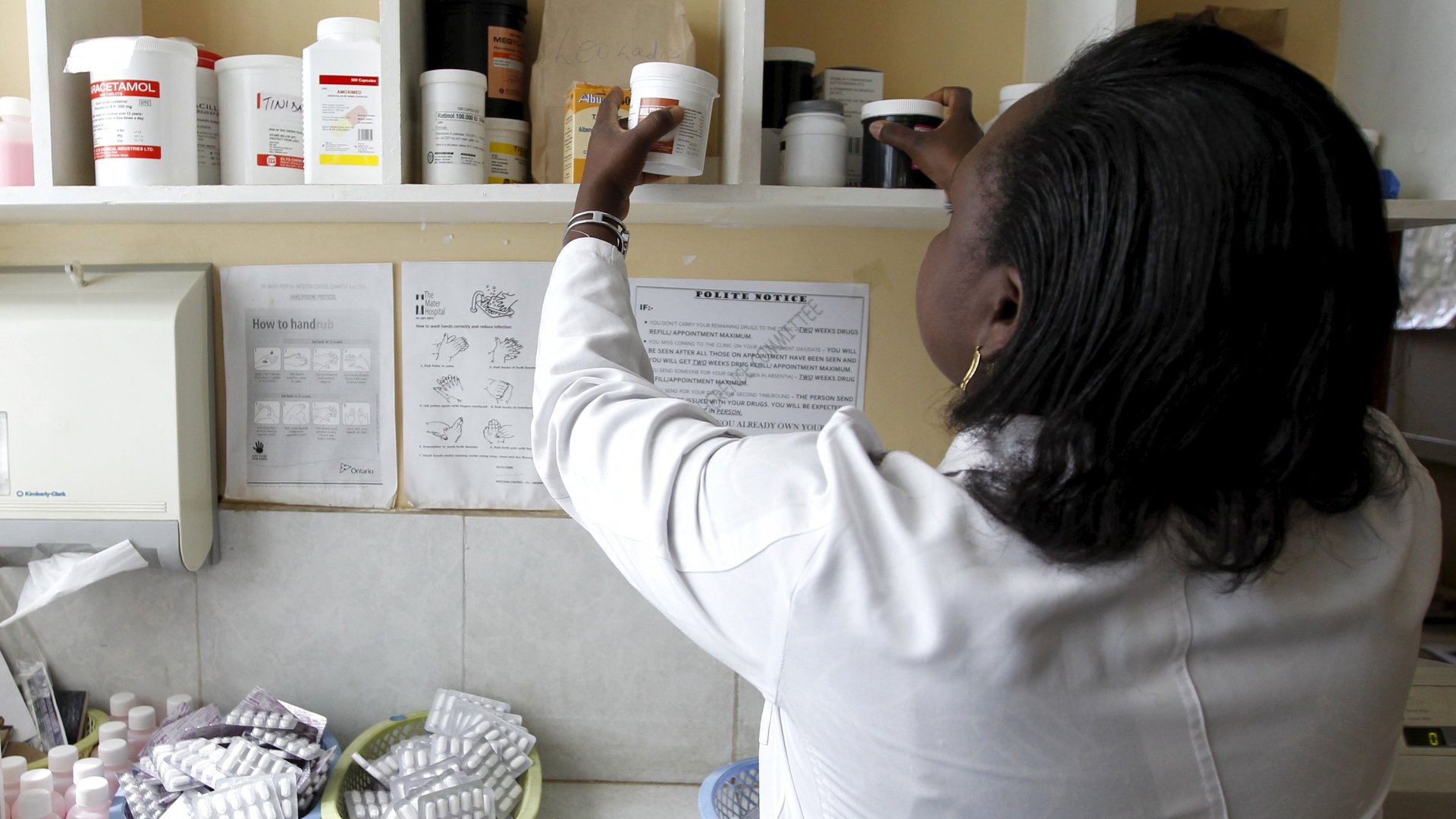The world could run out of one of the most effective snake bite medicines by 2016
An estimated 30,000 people die from poisonous snake bites in sub-Saharan Africa each year—and up to 100,000 in the world. Nature—a health science journal—reports that the humanitarian aid organization Médecins Sans Frontières (MSF), predicts that the world could run out of stock of a highly regarded antidote, Fav-Afrique, which neutralizes toxins and snake venom, by June 2016.


An estimated 30,000 people die from poisonous snake bites in sub-Saharan Africa each year—and up to 100,000 in the world. Nature—a health science journal—reports that the humanitarian aid organization Médecins Sans Frontières (MSF), predicts that the world could run out of stock of a highly regarded antidote, Fav-Afrique, which neutralizes toxins and snake venom, by June 2016.
While there are other antivenoms that can be used to treat snake bites, the MSF claims (pdf) that Fav-Afrique is one of few products that can reliably treat snake bites from 10 different types of snakes across sub-Saharan Africa. Fav-Afrique has proven to be highly effective in countries like the Central African Republic (CAR) and South Sudan, where MSF helps treats patients. According to the MSF, rising mortality results (pdf, pg.2) in both countries testify to this particular antivenom’s efficacy.
At $250-$500 per person, the French pharmaceutical’s antivenom is more expensive than competing products. But MSF says that alternatives to Fav-Afrique have not been proven as effective, and that little is known about their safety.
In 2010, the French-headquartered multinational pharmaceutical, Sanofi Pasteur, decided to halt the production of Fav- Afrique, and in January 2014, Sanofi produced its last batch of antivenoms, which were quickly sold out.
In a statement published (pdf) on the company’s website, the French pharmaceutical says it decided to halt the production of the medicine since competitors have began to emerge in client countries. These competitors—from pharmaceuticals mainly based in India, Spain, South Africa, Cosa Rica, Mexico and the UK—sell cheaper antivenoms, resulting in a six-fold decrease of demand for Fav-Afrique, according to the French pharmaceutical (pdf, pg.2).
Time for the WHO to step-up
Sanofi Pasteur says it is investigating options of transferring its knowledge of manufacturing the drug to other pharmaceuticals who would be willing to take over production, guaranteeing the right quality and supply of the product.
But it will take more than just another pharmaceutical company producing the drug to solve the problem.
Quartz spoke to Johan Marais, who leads the African Snakebite Institute, a South African educational organization. Marais said that the problem was beyond just the availability of cheaper antivenoms. Africa’s primary health care system, he said, needed a boost too.
“Access to clinics and hospitals is a challenge in many rural parts across the continent. This means that a lot of people who desperately need antivenoms do not have access to them,” said Marais.
“Added to this, most doctors on the continent are not properly trained to properly administer antivenoms. Many of them stop administering the medicine especially when their patients show signs of medical complications.”
Marais said that it is the World Health Organization’s duty to step in and start subsidizing the producing of effective and safe antivenoms. “We don’t have a shortage of pharmaceuticals to help solve the problem. There are about 40 companies that produce antivenoms. What we need is good distribution networks, sufficient training for doctors and the World Health Organization to step-up and subsidize antivenoms for the poor.”
Under the banner of its Access Campaign, Médecins Sans Frontières has called for (pdf, pg. 2) the WHO to assess the safety and quality of alternative antivenoms, in addition to calling for funding and support for snakebite medicine in developing countries.